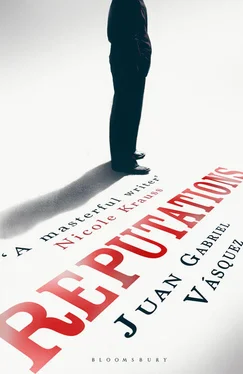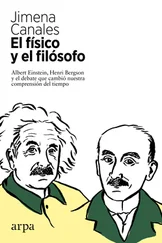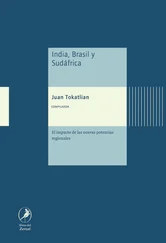Mallarino, for them, didn’t have particular features, and the few readers who’d met him over the years often commented with surprise: I hadn’t imagined you bald, or thin, or bearded. His was the kind of baldness that didn’t call attention to itself; when he met someone he’d only seen once before, Mallarino often received the same disconcerted comments: ‘Have you always looked like that?’ Or: ‘How strange. I didn’t notice when we met.’ Maybe it was his expression, which devoured people’s attention the way a black hole devours light: his eyes with drooping lids looking out from behind his glasses with a sort of permanent sadness, or that beard that hid his face like an outlaw’s bandana. His beard used to be black; it was still full, but had gone grey: slightly more at the chin and sideburns, slightly less on the sides of his face. It didn’t matter: it kept him hidden. And Mallarino was still unrecognizable, an anonymous being on the teeming streets. That anonymity gave him a puerile pleasure (a child hiding in forbidden rooms), and had calmed Magdalena, his wife back then. ‘In this country they kill people for less,’ she used to say to him when a general or a drug baron came off badly in one of his drawings. ‘It’s better that no one knows who you are or what you look like. It’s better that you can go out and buy milk and I won’t worry if you take your time.’
His gaze swept over the twilight universe of Parque Santander. It took just an instant to spot three people reading the paper, his paper, and he thought that all three would soon pass or had already passed their eyes over the letters of his name in print and then his signature, that clear upper-case letter that soon deteriorated into a chaos of curves and ended up disintegrating into a corner, the sad trail of a crashing plane. Everyone knew the space where his cartoon had always been: in the very centre of the first page of opinion columns, that mythic place where Colombians go to hate their public figures or find out why they love them, that great collective couch of a persistently sick country. It was the first thing anyone’s eyes saw when they reached those pages. The black square, the slender strokes, the line of text or brief dialogue beneath the frame: the scene that left his desk each day and was praised, admired, commented on, misinterpreted, repudiated in a column of the same newspaper or another, in the irate letter of an irate reader, in a debate on some morning radio show. Yes, it was a terrible power. There was a time when Mallarino desired it more than anything else in the world; he worked hard to get it; he enjoyed it and exploited it conscientiously. And now that he was sixty-five, the very political class he’d so attacked and hounded and scorned from his redoubt, mocked without consideration or respect for the ties of family or friendship (and he’d lost quite a few friends as a result, and even a few relatives), that very same political class had decided to put the gigantic Colombian machinery of sycophancy into action to create a public homage, which for the first time in history, and perhaps for the last, would celebrate a cartoonist. ‘This is not going to happen again,’ Rodrigo Valencia, publisher of the newspaper for the last three decades, said to him, when he called, diligent messenger, to tell him about the official visit he’d just received, the accolades he’d just heard, the intentions the organizers had just revealed. ‘It’s an offer that’s not going to be repeated. It would be silly to turn it down.’
‘Who said I was going to turn it down?’ asked Mallarino.
‘Nobody,’ said Valencia. ‘Well, I did. Because I know you, Javier. And so do they, truth be told. If not, why would they come here and ask me first?’
‘Oh, I see. You’re the negotiator. You’re the one who’ll convince me.’
‘More or less,’ said Valencia. His voice was guttural and deep, one of those voices that give orders naturally, or whose demands are accepted without a fuss. He knew it; he’d grown accustomed to choosing the words that best suited his voice. ‘They want to hold it in the Teatro Colón, Javier, imagine that. Don’t let the chance slip by, don’t be an idiot. Not for you, don’t get me wrong, you don’t matter to me. For the newspaper.’
Mallarino let out a snort of annoyance. ‘Well, let me think about it,’ he said.
‘For the newspaper,’ said Valencia.
‘Call me tomorrow and we’ll talk,’ said Mallarino. And then: ‘Would it be upstairs in the sala Foyer?’
‘No, Javier, this is what I’m trying to tell you. They’re going to have it on the main stage.’
‘On the main stage?’
‘That’s what I’m telling you, man. This thing’s serious.’
They confirmed it later — Teatro Colón, main stage, the thing was serious — and the place seemed only appropriate: there, under the fresco of the six muses, behind the curtain where Ruy Blas and Romeo and Othello and Juliet shared the same enchanted space, on the same stage where he’d witnessed so many beautiful artifices since he was a boy, from Marcel Marceau to Life is a Dream , he was now getting ready to play an artifice of his own creation: the favoured son, the honoured citizen, the illustrious compatriot with lapels wide enough to hold as many medals as necessary. That’s why he’d turned down the transport the Ministry had offered to put at his disposal: a bulletproof black Mercedes with darkened windows, according to the description over the phone from a tremulous-voiced secretary, which would have picked him up at his house in the mountains and dropped him off on the stone steps of the theatre, right below the wrought-iron-and-glass canopy, a young damsel arriving at the ball where she would meet her prince. No, this afternoon Mallarino had come down to the city in his old Land Rover and left it in a car park at Fifth and Nineteenth: he wanted to arrive on foot to his own apotheosis, approach like everybody else, appear suddenly at a corner and feel that his mere presence might send a tremor through the air, spark conversations, make heads turn; he wanted to announce, with this single gesture, that he hadn’t lost a speck of his old independence: he still had the clout to make any of them a target, and that wasn’t going to be changed by power or tributes or a bulletproof Mercedes with tinted windows. Now, on the bootblack’s chair, while the brush moved over his shoes (so quickly that it turned into a thick brown line, the way fans seem to no longer have blades as they spin into whirring white circles), Mallarino found himself asking a question that hadn’t been in his head before coming into town: what would Rendón have done in his place? If what had happened to Mallarino had happened to Rendón, what would he have done? Would he have received the tribute with satisfaction, or would he have accepted it with resignation or cynicism? Would he have refused it? Ah, but Rendón had refused in his own way: on 28 October 1931 he went into La Gran Vía, ordered a beer, drew a sketch and shot himself in the temple. In seventy-nine years, nobody had been able to explain why.
‘That’s three thousand five hundred, chief,’ the bootblack said. ‘You’ve got pretty big feet, sir, you know.’
‘So I’ve been told,’ said Mallarino.
‘All the better for me, you’ll pardon my saying,’ said the man.
‘That’s for sure,’ said Mallarino. ‘Better for you.’
Mallarino reached into his trouser pockets, the front and then the back, before moving to his grey raincoat where his fingers found, tangled in a number of threads like fish in seaweed, a till receipt and a greenish wallet, worn with use and falling apart. ‘Here,’ he said to the bootblack with calculated generosity, ‘and keep the change.’ The man flattened out the note, took an old leather wallet out of his wooden crate and tucked it inside, without folding it, sliding it in with precision. Then he raised his tired face, squeezed his eyes shut, opened them again: ‘Do you want to ask them, chief?’
Читать дальше












